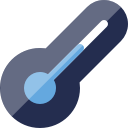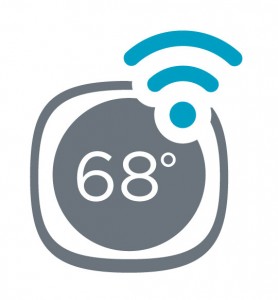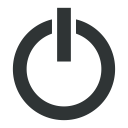How to Make Your Home Energy Efficient
Residential and small commercial customers participating in the City of Burbank municipal aggregation program may be eligible for an energy efficiency instant rebate on the monthly fee portion of your electricity supply fixed aggregation rate. This guide provides some tips on how to make your home more energy efficient.
What Is Energy Efficiency
Simply put, energy efficiency is the process of reducing your consumption of energy and shifting it to more optimal times. Electricity prices are highest during the Summer and Winter. These times of higher electricity demand are called "peak periods." July and August late afternoons are often periods of peak usage that put a lot of strain on the electrical grid. Utility companies are seeking to lower the peak usage during those times and shift it to "off-peak periods" (e.g., nights). Electricity prices reflect the peak vs. off-peak usage, with off-peak prices being significantly cheaper than on-peak prices.
For instance, let's take a look at the hourly day-ahead prices for July 31st, 2017. For hour ending at 10 PM CST, prices were 2.9 c/kWh. In comparison, the price was 5.6 c/kWh for the hour ending at 5 PM CST. That's over a 90% difference in electricity prices just based on time of use! While most customers pay an average rate instead of an hourly rate, the above example illustrates how wildly different prices can be throughout the day.
Based at least in part on the peak vs. off-peak usage patterns, ComEd assigns "classifications" (e.g., capacity and transmission tags) to a particular electricity account. Although assigned in January, these tags go into effect in June and last until May of the following year. The City of Burbank municipal aggregation is using ComEd classifications from January of 2017 for the June 2017 – May 2018 planning year. Customers that would like to qualify for the energy efficiency instant rebate need to shift their usage to off-peak hours before ComEd assigns a classification in January of 2018.
Next, we will go over some ways to optimize your energy consumption.
Top Ways To Optimize Energy Consumption
Paying attention to your temperature setting:

According to the Consumer Energy Center, setting your thermostat at 78°F during Summer is optimal, especially if you are using a fan to circulate the air. In addition, instead of turning your air conditioner off completely, increase the temperature to 85°F. If you turn off your HVAC unit completely, it can take additional energy cooling it back down and could cost you more than if you had just adjusted the temperature (source: http://time.com/money/4397522/money-saving-tips-to-beat-the-heat/).
Close the blinds!
About 40% of heat comes through your windows, so keep the curtains closed during those hot Summer days. Conversely, during Winter months, keep the curtains open to let the sun warm up your house or apartment.
Install a Smart Thermostat

There are many smart thermostats on the marketplace, such as Nest and Ecobee. Besides being just being a cool piece of technology, these products can help cut cooling costs by up to 15% and heating costs by 10-12%. You could control these thermostats while away from home using your Smartphone. There are rebate programs on smart thermostats through ComEd that offer up to 50% off the retail prices of smart thermostats. For more information on the program, visit here: https://www.comedmarketplace.com
Being smart about lighting

Be smart about lighting—turn off any unnecessary lights when possible. We recommend replacing all light bulbs with LED lights, since LEDs use much less energy. During the Winter, opening your curtains will let more natural light into the house.
Take Advantage Of Off-Peak

Electricity prices are much cheaper during off-peak times. On-peak usually runs from 9 AM to 9 PM. So it would be best to run those heavy-usage appliances like washing machines, dishwashers, dryers, and vacuums after 9 PM. While you may not see an immediate impact on your bill, your household will start building a profile as an energy efficient user.
Maintain Your Equipment

Changing the filters on your appliances like HVAC or air conditioner can also make a substantial impact on your usage and bill. A clogged air filter full of dirt causes your heating and cooling system to run longer in order to keep the temperature the same. The Department of Energy (DOE) estimates that the heating and cooling system uses 15% more energy, on average, when filters are clogged up. Best practice is to replace filters every 6 months, at a minimum.
Copyright ©️ 2013-2019 Eligo Energy, LLC or its affiliates. All rights reserved.
Electricity or Gas Supplier License/Order No.: Connecticut:Docket No. 14-09-11, 14-09-11RE01;District of Columbia:Order No. 17156, Docket EA2013-05;Illinois:Order No. 13-0293, 15-0074;Massachusetts:CS-164;Maryland:IR-2839, IR-4137;Michigan:Case No. U-17697, U-17814;New Jersey:ESL-0179, GSL-0155;New York:ESCO Code: ELIG, Matter No. 14-02554;Ohio:Certificate No. 12-578E, 14-399G, Case No. 12-2571-EL-CRS, 14-1903-GA-CRS;Pennsylvania:Application No. A-2014-2433211, A-2014-2433262;Texas:Certificate No. 10246


